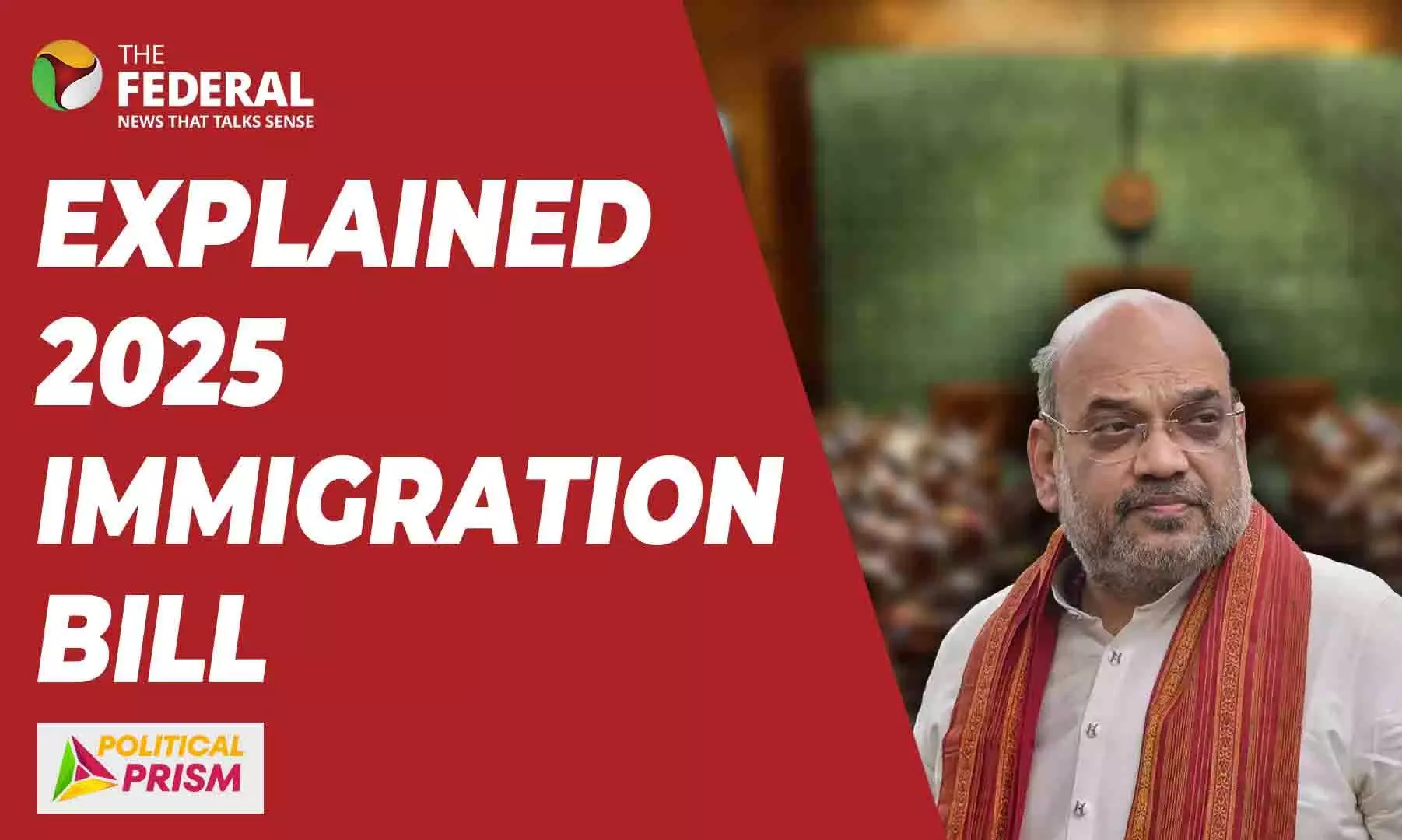
Explained 2025 Immigration Bill
Immigration Bill 2025: Everything you need to know
With omnibus powers to the Centre to deny foreigners' entry into India, will the Immigration bill also be weaponised to curb dissent?

The government has introduced the Immigration and Foreigners Bill in the Lok Sabha, aiming to replace four existing laws governing foreign entry and stay in India. While the government presents it as an effort to streamline outdated laws, opposition parties and legal experts argue that the bill grants sweeping powers that could curb dissent, violate fundamental rights, and raise concerns about international human rights commitments.
Existing laws under review
The bill seeks to replace:
Passport Act, 1920
Registration of Foreigners Act, 1939
Foreigners Act, 1946
Immigration Act, 2000
Government officials claim these changes are part of a broader push to remove colonial-era laws and consolidate various provisions under one comprehensive framework. However, critics fear it could be used as a tool to silence political dissent and restrict freedoms.
Opposition raises red flags
Congress MP Manish Tiwari and Trinamool Congress MP Saugata Roy opposed the bill, arguing that it should either be withdrawn or sent to a Parliamentary Committee for further scrutiny. The bill, piloted by Minister of State for Home Affairs Nityanand Rai, falls under the domain of Home Minister Amit Shah, adding political significance to the debate.
Also Read: Parliament resumes with fiery showdown, but INDIA bloc has storms to fight within
Opposition members highlighted concerns that the bill:
Grants the government unrestricted power to deny entry to foreigners deemed a threat to national security.
Could target activists, academics, and critics of the government.
Potentially prevents Indian-origin individuals from leaving the country under vague criteria.
Broad government powers under Clause 3
One of the most contentious sections of the bill is Clause 3, which states that a foreigner may be denied entry if the government believes their presence could harm India's national security, sovereignty, or relations with other countries.
Critics argue this provision could be misused to deport individuals based on political ideology, raising fears of a crackdown on intellectuals, researchers, and rights activists visiting India.
Additionally, the bill allows the government to stop Indian-origin individuals from leaving the country for loosely defined reasons—something legal experts consider a violation of the constitutional right to freedom of movement.
Privacy and medical data concerns
The bill also includes provisions affecting medical privacy. If passed, hospitals and medical institutions treating foreigners will be required to share all details of a patient's condition with the government.
This provision has been flagged as a violation of medical ethics and international conventions that India is a signatory to, such as the International Convention on Civil and Political Rights.
Potential economic impact
Clause 14 of the Bill allows the government to shut down establishments frequented by foreigners, including cafés, hotels, businesses, and co-working spaces. This has sparked concerns among business owners, particularly in industries that cater to international tourists and professionals.
The ambiguity of this clause means that businesses could be forced to shut down without due process, leading to economic losses and affecting India's global business reputation.
Is this law necessary or excessive?
At a time when India's global image is under scrutiny for concerns over civil liberties and press freedom, this bill raises fundamental questions:
Does it strengthen national security or enable government overreach?
Will it align with constitutional values and international commitments?
How will it impact India's diplomatic relationships and economic interests?
The opposition has called for deeper examination and revisions before the bill is passed into law. Whether the government will accommodate these concerns remains to be seen.
The content above has been generated using a fine-tuned AI model. To ensure accuracy, quality, and editorial integrity, we employ a Human-In-The-Loop (HITL) process. While AI assists in creating the initial draft, our experienced editorial team carefully reviews, edits, and refines the content before publication. At The Federal, we combine the efficiency of AI with the expertise of human editors to deliver reliable and insightful journalism.

